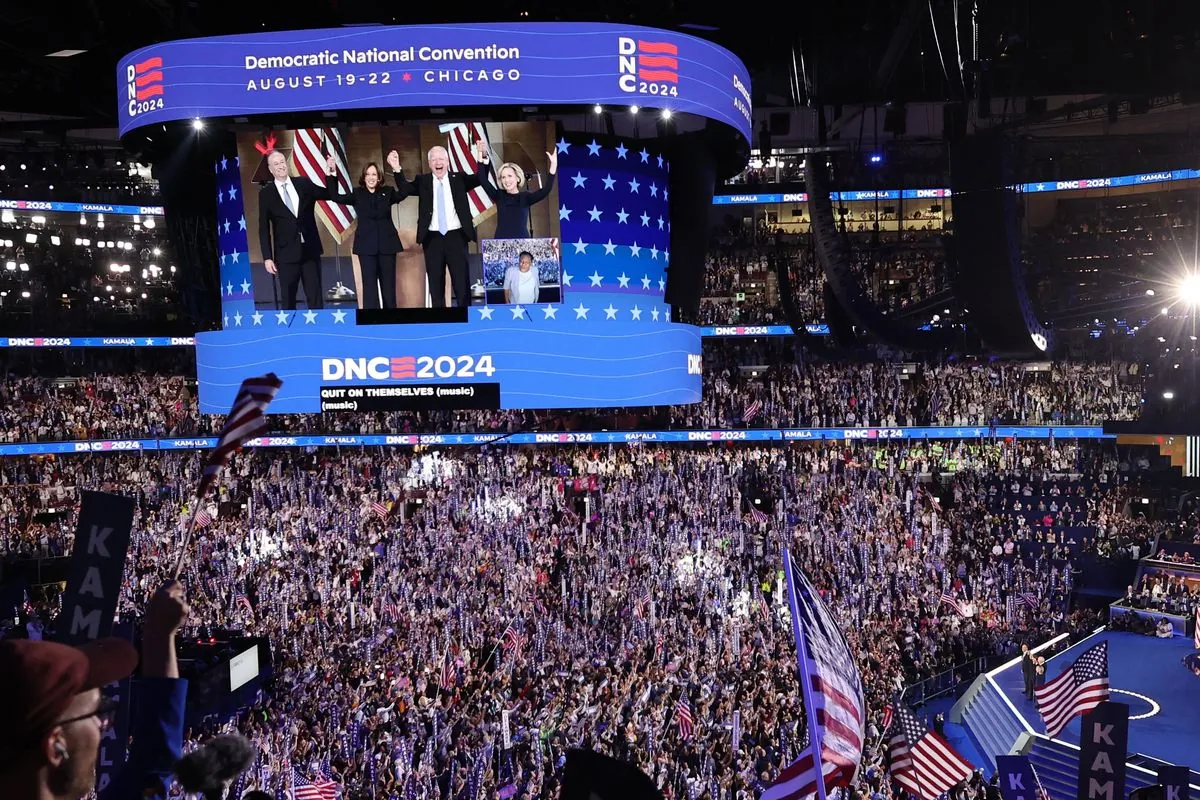Democrats' Unity Message at Chicago Convention Faces Skepticism
At the Democratic National Convention in Chicago, party leaders emphasized unity amidst a divided America. Critics question the effectiveness of this recurring theme in bridging political divides.

The Democratic National Convention in Chicago on August 22, 2024, saw Kamala Harris deliver a speech that energized her party. This event marked a significant shift in the Democrats' outlook, contrasting sharply with earlier concerns about potential losses in both presidential and congressional races.
The convention's central theme, echoed by former presidents Bill Clinton and Barack Obama, vice presidential nominee Tim Walz, and Harris herself, focused on America's deep divisions and the Democrats' purported ability to heal these rifts through another term in office.
This message of unity, however, is not novel. Twenty years ago, Barack Obama first gained national attention with a similar call at the 2004 Boston convention. He famously stated, > "There is not a liberal America and a conservative America. There is the United States of America."

Despite repeated promises of unification, including Joe Biden's 2020 campaign pledge, the United States remains deeply polarized. The Democratic Party's role in this ongoing division cannot be overlooked.
While Donald Trump's presidency has been a source of contention, issues championed by some Democrats, such as defunding the police and promoting certain gender ideologies, have also contributed to the nation's divide. These topics, far from being conservative fabrications, represent real concerns for many Americans.
The Democratic leadership's apparent support for radical causes has often seemed disconnected from the priorities of the average citizen. This disconnect is evident in the approach to cultural issues, where calls to end "culture wars" sometimes appear to demand capitulation to progressive agendas rather than genuine compromise.
For unity calls to be meaningful, they must translate into balanced policy-making, not just election-time rhetoric. Tim Walz, despite portraying himself as an all-American family man, has governed Minnesota from a distinctly left-leaning position.
It's crucial to recognize that political divisions in America are not solely the responsibility of one party. The Democrats' ability to unite the nation remains questionable, despite their repeated claims to the contrary.
As the convention concludes, delegates return to their states with renewed optimism. However, the challenge of truly uniting a deeply divided America persists, requiring more than just campaign promises and convention speeches.


































